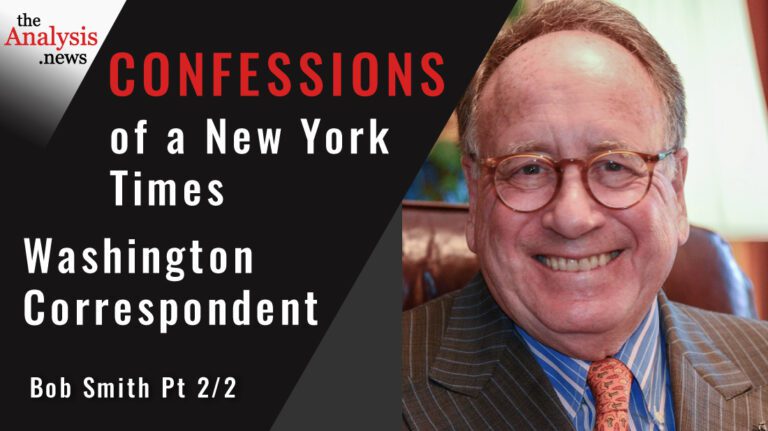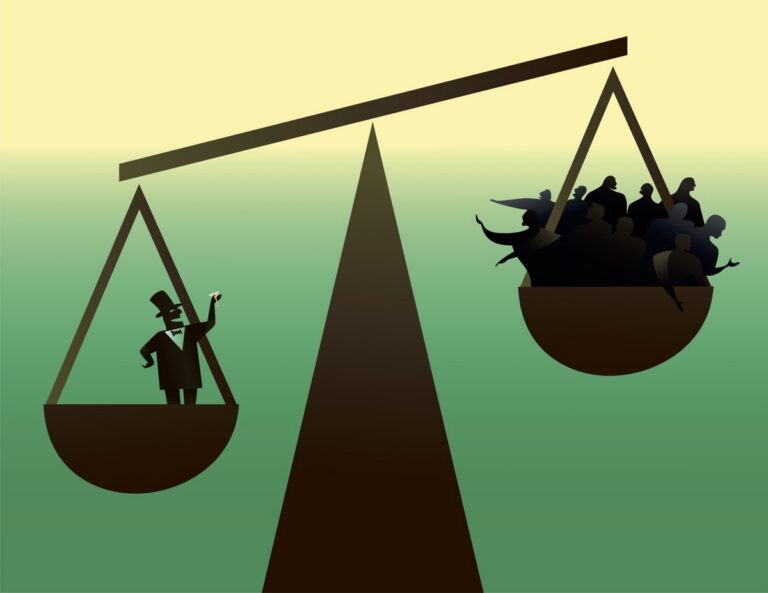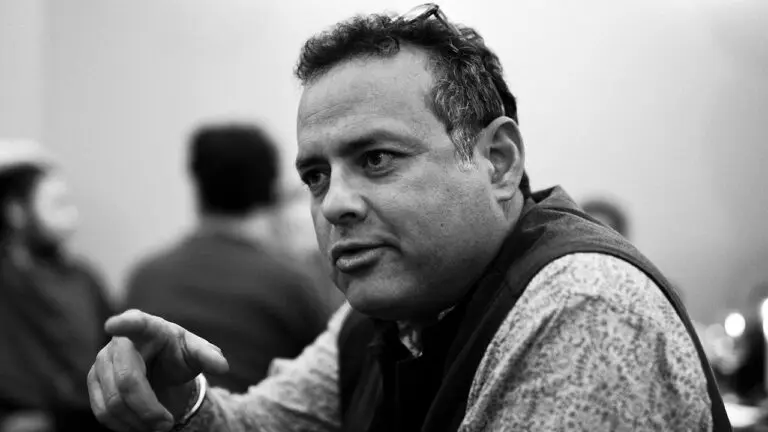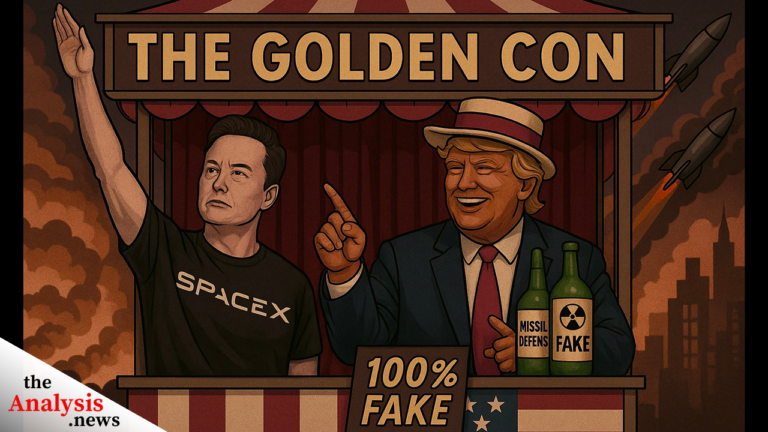This is an episode of Reality Asserts Itself, produced on May 18, 2017. On Reality Asserts Itself, Norman Solomon of the Bernie Delegates Network tells Paul Jay that the California fight reflects a much larger struggle within the party between progressives and corporate Democrats.
PAUL JAY: Welcome to the Real News Network, and welcome to Reality Asserts Itself. I’m Paul Jay. There’s a war going on. Not a war that you might have heard of, because it’s not getting very much coverage. In fact, it’s a war going on within the United States. In fact, it’s a war going on within the Democratic Party itself. It’s a continuation of the primary fight between Bernie Sanders and Hillary Clinton, a fight between many different forces that coalesced around the Sanders candidacy. Some of this is somewhat led by Sanders, and much of it is led by various activists and organizers across the country who have taken up this fight, and it resolves, or revolves I should say, around one kind of key point. Just what is a progressive anyway, and can the Democratic Party actually be progressive? When Bernie was running, and even after he lost in the convention, he created or helped create an organization called Our Revolution. He’s not directly involved anymore. This has a lot to do with financial reasons and such. At any rate, Our Revolution and others have said that they are going to try to elect progressive candidates. There’s a fight going on even within those circle, given Trump’s election victory, which is, do you just elect Democrats of any kind because you got to beat Trump, you got to take control of Congress, you got to win back the House and so on, or is the first fight against corporate Democrats, right-wing Democrats, as people call them? Again, it comes back to this question of, just what is a progressive? There was an important point in the debate between Hillary Clinton and Bernie Sanders where Clinton said, “Bernie Sanders and I have the same objectives. We only have different ways to get there, and I’m a progressive,” says Hillary, and she said it very recently. In fact, Hillary’s branded herself as part of the resistance. If corporate Democrats like Hillary are progressive and part of the resistance, then just what is a progressive and what is the resistance? Now joining us to discuss all of this is a man who’s been part of this fight for a long time. Now joining me in the studio is Norman Solomon. Norman is the executive director of the Institute for Public Accuracy, and co-founder of the national group rootsaction.org. He’s the author of many books, author of many books, including War Made Easy: How Presidents & Pundits Keep Spinning Us to Death, and Made Love, Got War: Close Encounters with America’s Warfare State. Thanks for joining us.
NORMAN SOLOMON: Pleasure. Thanks, Paul.
PAUL JAY: This fight that’s playing itself out in the Democratic Party, as I said, getting almost no media attention at all, one of the centers of this fight is in California. Certainly the state with I guess the most Democrats. It’s the state that Bernie Sanders had a great deal of support in, but didn’t win in the primary, so there’s a real war between the Clinton-esque forces and Sanders forces. Before we get into sort of a view on what that fight is, let’s just start with that question, because this issue of what is a progressive is kind of at the heart of the fight that’s taking place in California and elsewhere in the Democratic Party. These days, everybody’s calling themselves a progressive.
NORMAN SOLOMON: Yeah. There’s an insurance company called Progressive. It’s just a word, and as the zen statement says, the finger pointing at the moon is not the moon, so all sorts of folks, as you say, may use the word, but what’s the substance? I think that really is the substantial battle going on within the Democratic Party, both those who are activists and more conceptually. Right now, the Clinton wing still controls through the Democrat National Committee the party apparatus, and they are, and it sound be said the corporate and NPR, PBS kind of news media, they are defining progressive as comfortable with warfare as a perpetual feature of US foreign policy, comfortable with and embracing Wall Street as symptomatic of health of our economy and social structure. People have a different vision who believe like Martin Luther King, that the madness of militarism must be challenged. People who believe that healthcare is a human right, that secure retirement is a human retirement, and so on, and so forth, we’ve got a big battle on our hands, and that battle is including within the Democratic Party.
PAUL JAY: I know in my lifetime, the sort of definition of what a progressive was versus what a liberal was really rose out of the Vietnam War. For many years, the Vietnam War was a war of the Democratic Party. If you were against the Vietnam War, you were also against Lyndon Johnson. You were against the leadership of the Democratic Party in that war, and there was this big division of liberals that support the war because it was the Democratic Party. They started becoming more antiwar when it’s the Republicans, so it becomes a partisan issue. Then you have a separate divide on the economic issues, so what is the litmus test now? Within the Sanders campaign, and the Sanders movement, you get a fairly clear cut split on economic questions. Medicare for all and such, but on the issue of war, you don’t have such a clear cut split.
NORMAN SOLOMON: It’s a fascinating counterpoint, because as you say, at one time, liberal was sort of the, pardon the expression, progressive, although the term was not used then, a position point for Civil Rights and so forth. Coming out of the late 1960s, liberal became a dirty word because Hubert Humphrey was a liberal, and he was supporting the war, and so on and so forth. The new left of the mid-late sixties and early seventies was not a fight really against the right wing so much as against the Cold War liberals, the corporate liberals. I think in the last 10, 15 years people like Hillary Clinton, and Bill Clinton, and the forces they represent saw that they needed to rebrand themselves, that both in terms of dealing with the mass media, dealing with centrists and others, liberal as a name had come into disrepute as it had among farther left people. The corporates, the warmongers, you might even say, embraced progressive. They just rebranded themselves, so it’s a fight for meaning now. I think that’s where in part the Sanders campaign was so important, because we said, and millions of us who identified with and worked for the campaign in some way or other, said that as progressives, we’re not putting up with this stuff from Wall Street. We don’t believe in the oligarchy. We don’t believe that money should rule, and we’re going to stop talking in euphemisms, and I think this is a key point. Not only do we express our solidarity with the victims, but we name the victimizers. That is a flip over from the dominant forces that have called themselves liberals, including the Democratic Party for so long. They want to express some sympathy for, and willingness to help the downtrodden, the victims, if you will, but they refuse to name the victimizers and say that we’ve got a fight on our hands against them. I would just use that statement from Franklin Delano Roosevelt back in mid-1930s, when he spoke in Madison Square Garden. He said that the wealthy, the oligarchs of that era hate me, and I welcome their hatred. Those were his word, and de facto, Hillary Clinton and the forces that she continues to represent, their message is, I want them to love me, and that was what Bill Clinton has been about, Hillary Clinton, and by the way, Barack Obama.
PAUL JAY: There was a parallel to the split on you can say the center left and left, a parallel to Vietnam which was the Iraq War. Certainly Bernie Sanders, in his campaign, primary campaign against Clinton, made her support of the Iraq War an issue, but it seems to have been so subdued now. In the fight over the chairmanship of the Democratic Party, it wasn’t like your support for the Iraq War was an issue. It’s become very secondary to some of the, I guess the economic language, and why do you think that is? For example, if you take the fight that’s taking place in California. Let’s use that as the framing for this. There’s a convention coming up this weekend, and the … If I understand it correctly, it’s quite a battle for the chairmanship of the state party. Is the Iraq War, and the issue of the Clintonites’ support of the Iraq War, and that thing, is it any kind of issue at all?
NORMAN SOLOMON: I would say first that Bernie’s campaign for President last year attempted to freeze frame the vote on the invasion of Iraq, in which case, Hillary Clinton voted for it. Bernie voted against it. He wanted to make that sort of a template for evaluating someone’s foreign policy. Nice try, and it had some effect, but insufficient, and there was a telling moment in one of the debates between Hillary Clinton and Bernie where Bernie made the critique about the regime change support for the so-called no-fly zone, basically making war in Libya, and the catastrophic results. He criticized Hillary Clinton for it, and she came back and said, “Well, you supported it also,” with some misgivings. I think that was a very telling moment, because if Bernie was treating the war machinery of the United States the way that he treats Wall Street, he would be a totally antiwar candidate. He would be railing against quite properly the military industrial intelligence complex. To flip it over, if Bernie treated Wall Street the way he is often addressing issues of US foreign and military policy, he would be talking about Wall Street like, “Well, you know, I have some concerns, but basically, uh, we need to stay with the Wall Street program.” This is a split that is manifested at the grassroots, way more than on Capitol Hill, because there are very few Democrats in Congress who are willing, in this environment, to challenge the warfare state, to challenge perpetual war. They didn’t do it under President Obama, for the most part, with some exceptions. They’re certainly not doing it now, in terms of challenging people like Nancy Pelosi and Chuck Schumer around perpetual war. They’re willing to make nice with perpetual war and the forces that are propounding it, whereas at the grassroots, I think there’s a lot more antiwar sentiment, some more activism emerging, and I think that is a sort of a subtext among many others of the battle going on in California right now, as you mentioned. Imminently, the state party convention, for the first time in eight years, will choose a new chair of the California Democratic Party. Fortunately, Kimberly Ellis is challenging the more establishment candidate Eric Balman, who chaired the LA County Democratic Party for quite a while. That I think replicates the battle between Keith Ellison and Tom Perez for the chair of the DNC nationally. We’ll see how that goes, but I believe that win or lose, the more progressive forces in California, we’re not giving up. It’s a state I’ve been in for 25 years. I ran for Congress there. I always had the mantra that win or lose, and I did lose, that we need to leave compost after a campaign. I just wanted to say that in the North Bay, north of San Francisco, we have built an organization called the Coalition for Grassroots Progress that has fought for and gotten delegates to the state committee, and the state convention, and that sort of dynamic is true in many parts of California, so I think there is a grassroots fight being waged for authentic progressive policies in California.
PAUL JAY: All right, so talk about the fight for the state chairmanship, and this question of what’s a progressive? How does that express itself in the fight?
NORMAN SOLOMON: I think a lot of it is manifested in the issue of, do you open the doors to participation? Is the California Democratic Party, that has the word democratic in its middle name, really going to say that we welcome participation, not just rhetorically, but in a very real, tangible sense. We go out into communities. We open the doors literally and figuratively, and this echoes and mirrors I think one of the key points that Bernie was making as a presidential candidate, that especially young people, but in general the population doesn’t relate to a bunch of, by any other name, hacks coming out and asking for votes once in a while when they’re tied in with the wealth, or they’re tied in with corporate forces, and so forth. In California as well, even if it’s not explicit in some respects, I think that Kimberly Ellis is articulating the need to get off the dime, to break up the old formula of, we know how to run this party, and other people are out there to volunteer, to raise money, and to vote only. We have to shape that party. There are so many people in distress in terms of healthcare, education, housing, the elderly, young children, the environmental assault, which is not really being mitigated by democratic Governor Jerry Brown, contrary to some myth. It is a battle of what does a progressive really mean?
PAUL JAY: Bernie, and I take your point, that he didn’t extend this enough into the foreign policy realm, but he’s made his point that the real definition of a progressive, I think the way he describes it, is someone who fights the oligarchy, not just fights Republicans. Extend that one more little step, which means you fight the oligarchy as it represents itself within the Democratic Party.
NORMAN SOLOMON: Yes. I think on the substance and on policy, that’s a key point, and there’s also an aspect that is very rarely discussed in mass media or even in progressive media. That is it’s not only the correct thing to do, the moral, the idealistic, the principle thing to do to fight for people’s well being against these corporate forces, but it also is a better way to fight right wing populism. If the only avenue open for anger over economic decline, and the widening gap between the rich and the rest of it, if the only avenue is frauds, and demagogues, and right wing xenophobes and racists like Donald Trump, then that’s the only alternative that many apolitical or depoliticized people will gravitate towards. It’s much more effective and crucial, and Jim Hightower and others have been making this point for decades. We need authentic, progressive populism that needs to include an electoral avenue.
PAUL JAY: This fight in California’s been taking place in many levels. Talk a little bit about what fronts this fight is on. One is the state chairmanship, which we’ll come back to, but there have been fight … At many levels, there was a vote not long ago, and I haven’t even got it clear in my mind, but delegates to one of the Democratic Party forums, that in fact the Sanders campaign did very well, but it was quite a pitch battle.
NORMAN SOLOMON: Yeah, the structure of the state party is there are several thousands delegates to what they call the State Central Committee. Once every two years, around the state by assembly districts, there are caucuses, and Democrats or others who register as Democrats can show up and vote. Last fall, we, collectively, progressives around the state who were involved in the Democratic Party, we decided we again, as we tried before, go in there and fight in these different caucuses. By all accounts, we had major victories in a lot of the state. I know in the North Bay, north of San Francisco, we had 17 seats up, and the Coalition for Grassroots Progress, as I mentioned coming out of my congressional campaign, we won 17 of those 17 seats, and that was about organizing. That’s using the relationship that we have not only from previous election campaigns, but from organizing, and holding protests, and pressure campaigns for immigrant rights, for poor people, anti-racism against police violence, organizing. Those networks, it’s not just about winning elections or gaining power inside the party. It’s about mobilizing and capacity building. One example I would give is that in Richmond, California, which is a city of 100,000, there has been an organizing drive by the Richmond Progressive Alliance for more than a dozen years, and they now have a five to two solid, genuine progressive majority on the Richmond City Council. Chevron has one of its largest and most lucrative refineries in Richmond. There was one day with an accident there that was predictable. 15,000 people went to the emergency room in one day. That’s the kind of environmental racism that is so rooted in the status quo in the East Bay, and in Richmond in particular. Those folks did it in a very open way. They said, “We don’t care if you’re Democrat, Independent, Green Part, whatever. We’re into building coalitions,” and I think that that is really a wave of the future, because we need to fight for power, and we do need it ina way that’s principled, and practical, and giving no quarter.
PAUL JAY: Kimberly Ellis, who’s the sort of progressive standard bearer, in your answer give a little more why we would call her, or you would call her a progressive standard bearer, because she, if I understand correctly, endorsed Clinton in the primaries.
NORMAN SOLOMON: Yeah, that’s my understanding, and-
PAUL JAY: Why are the Sanders people galvanized, for example, Nina Turner’s going to support her at the California convention and speak on her behalf. I believe the nurses’ union, which is very associated with progressive politics and Democratic Party, is supporting her. What is it about her candidacy, and what does that represent?
NORMAN SOLOMON: She’s pushing, and we’re supporting her to be the chair of the California Democratic Party, in large measure because her articulated commitment is to open the party up, to have people’s involvement not only tolerated or solicited, but actually sought, and make the party part of a community base operation, and really, frankly to break up what you could call an Old Boys’ network in the establishment, where the people in the legislature who are Democrats end up running the show, no matter what people from the grassroots want. Her opponent, Eric Balman, who has cultivated sort of a progressive reputation, is perceived, and I think is part of that long-standing state Democratic Party establishment. He also took money from his consulting firm to support a position of the pharmaceutical industry, to block a progressive pharmaceutical measure for the state ballot.
PAUL JAY: On some of these litmus test issues that we’ve heard Bernie, and Nina, and others talk about, healthcare is a right, meaning Medicare for all, $15 minimum wage. All the various economic demands, Kimberly supports all of these?
NORMAN SOLOMON: Yes.
PAUL JAY: Her opponent does not?
NORMAN SOLOMON: She supports them more authentically, and I would give a example. It’s sort of a reference to what you said early on in our discussion here. In California, perhaps more than anywhere else in the Democratic Party, almost everybody says that they’re a progressive, but look at what happened when the single payer bills were passed by the California legislature under Governor Arnold Schwarzenegger. It was passed once, and vetoed by Schwarzenegger. It was passed again, vetoed by Schwarzenegger. Then Democrat governor Jerry Brown comes into office, and keep in mind, single payer has been the official position of the California Democratic Party for a very long time. The Democratic Party leaders in the state assembly, in the state Senate, consciously decided we will not let a single payer bill come to the floor for a vote, and they did that because they didn’t want to embarrass Jerry Brown, who didn’t want to have to veto it, which he would have. I think that’s both an example and a metaphor for how the main line establishment party in the state has operated, and we need to allow the grassroots to gain much more power. I think that’s an example nationally. Grassroots activists, and in fact, people who call themselves Democrats, are way more progressive than people like the DNC chair Tom Perez. They’re sort of being scammed by people like Perez, and placated with rhetoric, rather than actually fighting for what is so essential. We’re told politics is the art of the possible. It’s the art of the imperative, when people are malnourished, when the schools are lousy, when the elderly are going without assistance, and the poor, and of course climate change, and the rush to escalate war even more, although Obama did a lot of that in terms of the drone war and so forth. This is a question of, what is the meaning of our political existence?
PAUL JAY: Okay. In the next segment of our interview, we’re going to talk about James Comey, Russia, and all the furor that’s going on in D.C. right now, and continue this conversation, what’s a progressive take on those events? Please join us for our continuation of Reality Asserts Itself on the Real News Network.
Never miss another story
Subscribe to theAnalysis.news – Newsletter
“Norman Solomon is an American journalist, media critic, activist, and former U.S. congressional candidate. Solomon is a longtime associate of the media watch group Fairness & Accuracy In Reporting.”









